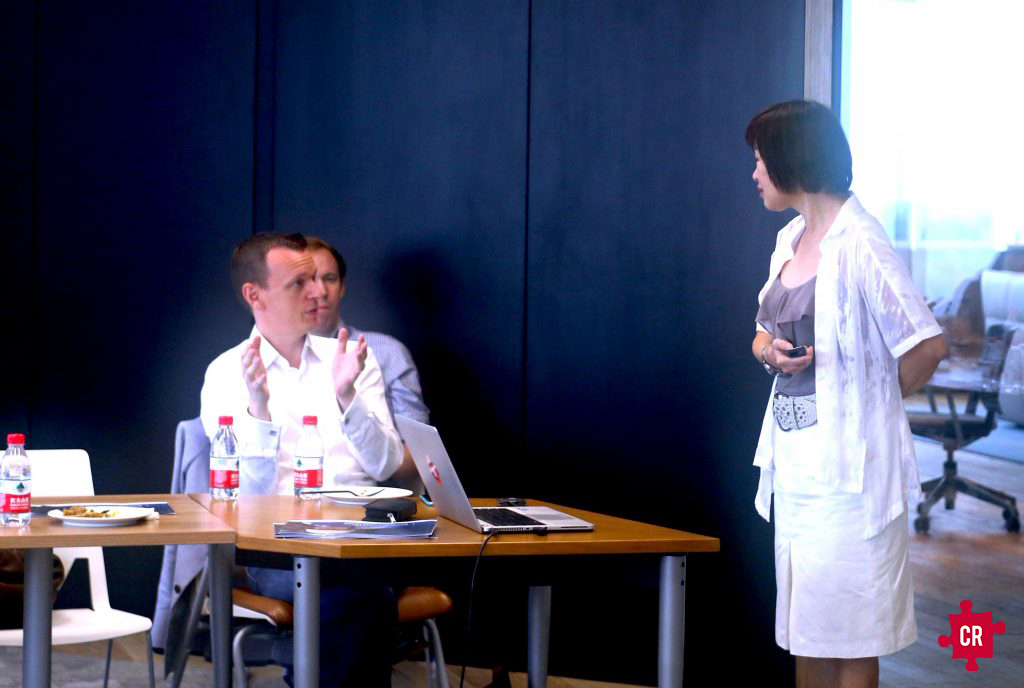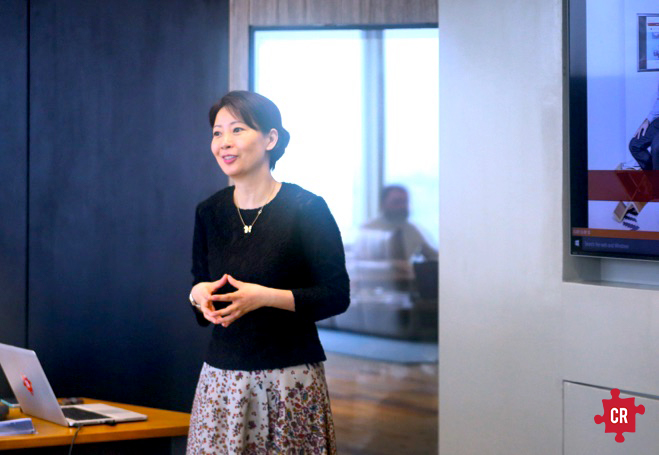With China’s desire to shift from “made in China” to “created in China”, the movement away from labor-intensive industries towards new, innovative, and highly efficient manufacturing has begun. Additionally, the existing Chinese workforce is more expectant and empowered than ever, demanding increasingly higher wages – wages that are some of the highest in the Asian region.
As many consider the era of low-cost manufacturing to be reaching its end, we invited Daphne Xiao, Vice President of Leadership and Organization Development of Global Markets of Unilever, and Pamela Chen, Executive Vice President of Li & Fung Trading Services (Shanghai) Co. Ltd, to give their practical insights on the future of labor at our July Beyond Business As Usual Luncheon.

Kicking off the session, Pamela shared some macro labor trends she’s been seeing from Li & Fung’s perspective. Despite the competition from other emerging markets, Pamela thinks that China’s status as “the world’s factory” remains intact. She then talked about how incidents like the Foxconn suicides are ‘awakening’ people to realize the worsening labor conditions in the manufacturing industries. Among them, some factories are turning workers into working machines and causing personal problems for the workers by driving them away from their families.
Speaking about other macro labor trends, Pamela talked about the labor shift from the south and the expensive coastal regions into the inland, northern, and western regions of China due to expensive living costs and other factors. Finally, she shared her observation about how the aspirations of the Millennial Worker has changed from merely ‘I want to get out of my village’ to something more sophisticated. She emphasized the need for factory managers and other stakeholders to adapt to this mindset change and recalibrate strategies to engage with the new generation of workers.

Following Pamela’s points about the Millennial, Daphne talked about the generational gap between millennial workers and line managers, as her role in leading Unilever’s HR department allows her to have insightful observations on this issue. She said that conflict occurs when millennial employees are thinking about long-term organizational goals, such as sustainability, while line managers’ focus on short-term results, such as sales numbers. She then discussed the need to review benchmarking systems; because the profile used for benchmarking is based on past successful samples, to what extent this process is helpful for corporate leadership to recruit new talent is debatable.
Daphne also talked about how young employees’ perceptions towards job training differ from those of their elder peers. Some of the complaints she’s received from Unilever’s recent training courses include ‘not being time-efficient‘ and ‘taking away from their time to work’.
Lastly, she talked about how the job turnover pattern has changed in recent years. ‘Anything is possible,’ Daphne said to summarize the current job-changing pattern. She said employees used to switch jobs from one multinational company to another, but now, many jump from a multinational firm to a start-up. This pattern requires corporate leadership to rethink retention tactics and areas needing improvement to retain talent.
If you wish to learn more about tactics for adapting to new labor trends, please reach out to Charlie Mathews at [email protected] or Yuxin Wang at [email protected].
To join our next Beyond Business As Usual Luncheon, or to learn more about the series, please click here.
